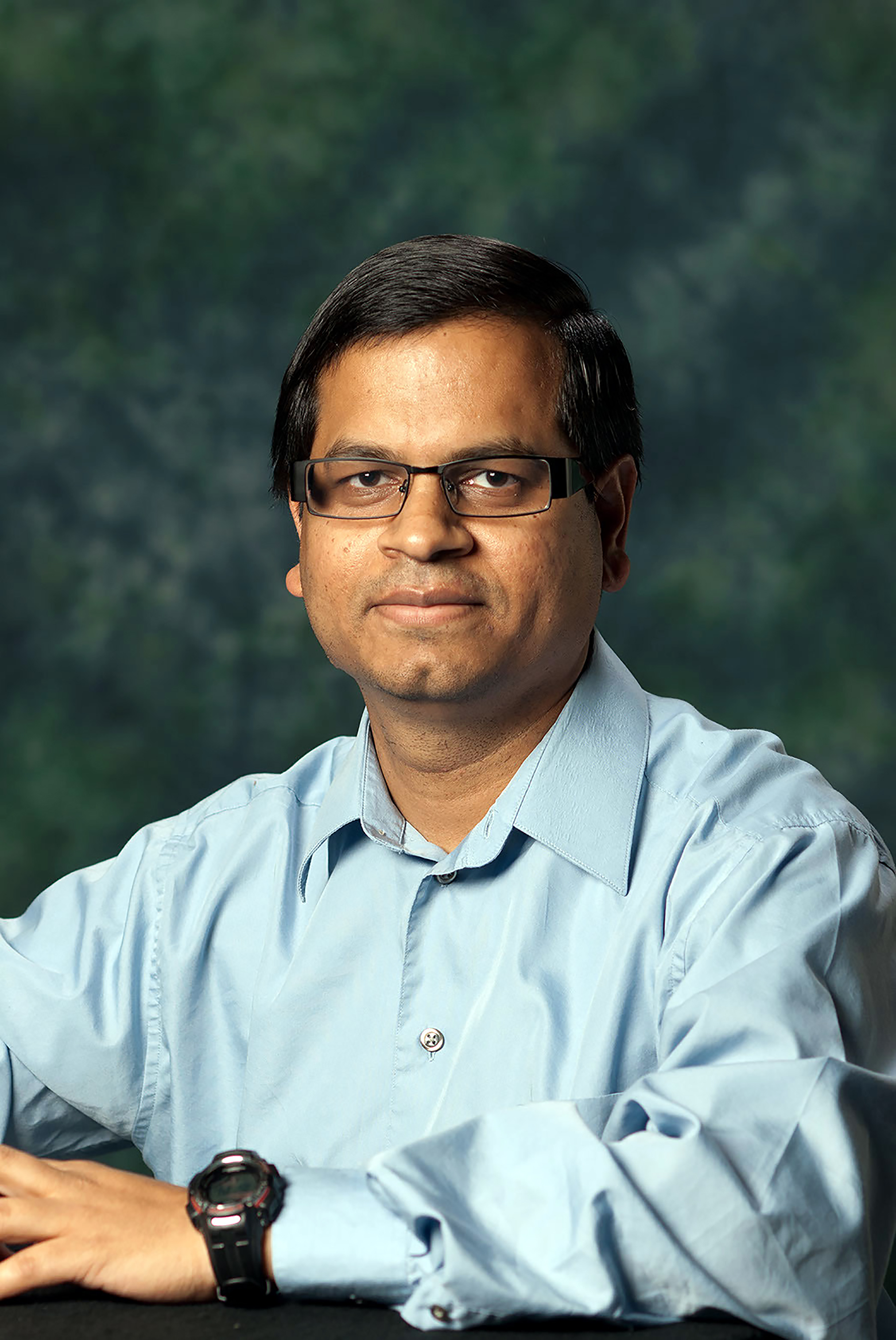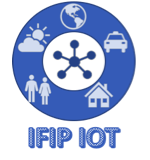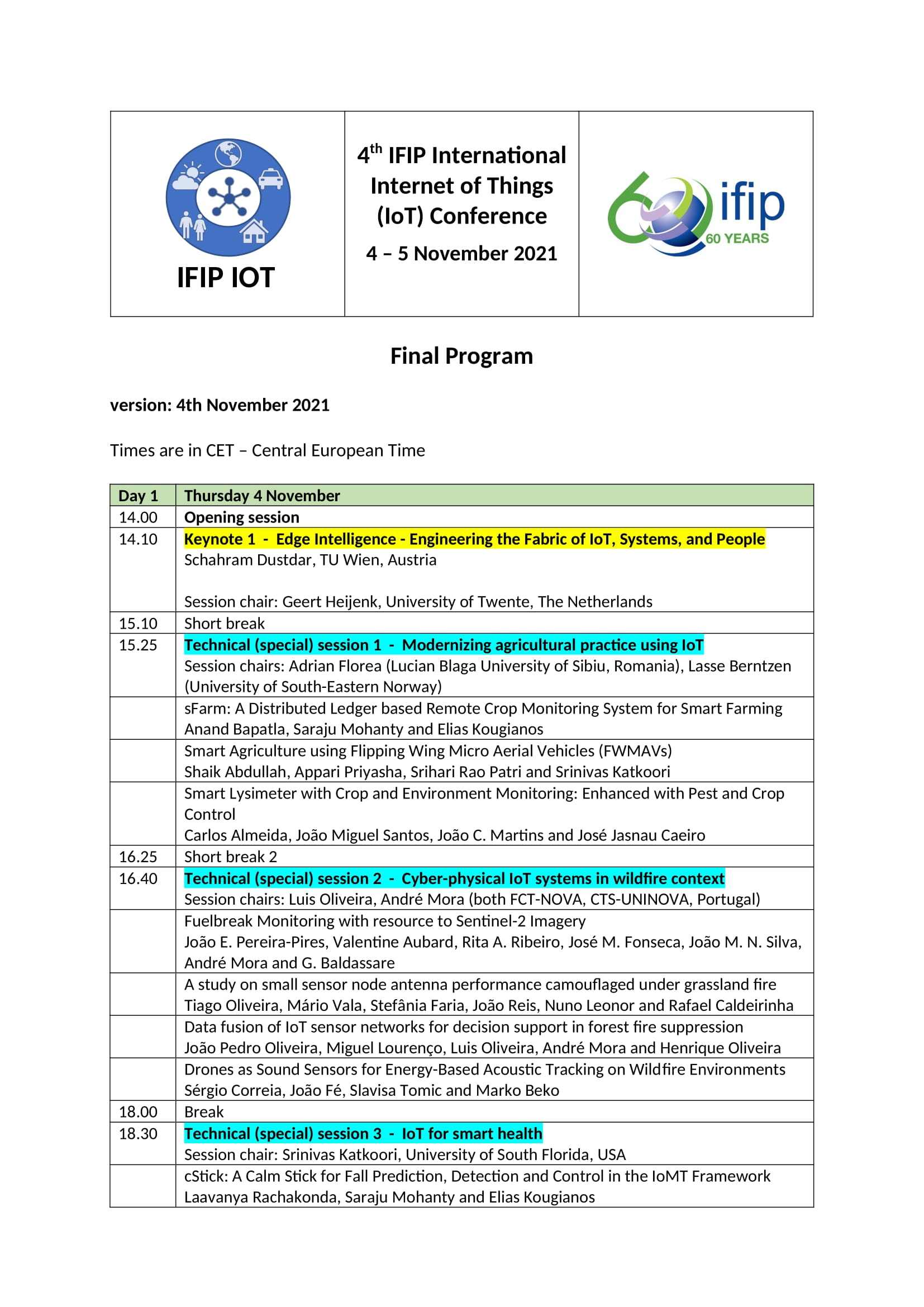Keynote Speakers

Title: Edge Intelligence - Engineering the Fabric of IoT, Systems, and People
Schahram Dustdar, TU Wien, Austria
Abstract: As humans, things, software and AI continue to become the entangled fabric of distributed systems, systems engineers and researchers are facing novel challenges. In this talk, we analyze the role of IoT, Edge, Cloud, and Human-based Computing as well as AI in the co-evolution of distributed systems for the new decade. We identify challenges and discuss a roadmap that these new distributed systems have to address. We take a closer look at how a cyber-physical fabric will be complemented by AI operationalization to enable seamless end-to-end distributed systems.
Bio: Schahram Dustdar is Full Professor of Computer Science
heading the
Research Division of Distributed Systems at the TU Wien, Austria. He
holds several honorary positions: University of California (USC) Los
Angeles; Monash University in Melbourne, Shanghai University, Macquarie
University in Sydney, and University of Groningen (RuG), The Netherlands
(2004-2010). From Dec 2016 until Jan 2017 he was a Visiting Professor at
the University of Sevilla, Spain and from January until June 2017 he was
a Visiting Professor at UC Berkeley, USA.
From 1999 - 2007 he worked as the co-founder and chief scientist of Caramba Labs Software AG in Vienna (acquired by Engineering NetWorld AG), a venture capital co-funded software company focused on software for collaborative processes in teams. Caramba Labs was nominated for several (international and national) awards: World Technology Award in the category of Software (2001); Top-Startup companies in Austria (Cap Gemini Ernst & Young) (2002); MERCUR Innovation award of the Austrian Chamber of Commerce (2002).
He is founding co-Editor-in-Chief of the new ACM Transactions on Internet of Things (ACM TIoT) as well as Editor-in-Chief of Computing (Springer). He is an Associate Editor of IEEE Transactions on Services Computing, IEEE Transactions on Cloud Computing, ACM Transactions on the Web, and ACM Transactions on Internet Technology, as well as on the editorial board of IEEE Internet Computing and IEEE Computer. Dustdar is recipient of the ACM Distinguished Scientist award (2009),an ACM Distinguished Speaker (202), the IBM Faculty Award (2012), an elected member of the Academia Europaea: The Academy of Europe, where he is chairman of the Informatics Section, as well as an IEEE Fellow (2016).
Title: Secure IoT by Design
Saraju P. Mohanty, University of North Texas, USA
Abstract: Smart cities use one or multiple smart systems (or components) including smart healthcare, smart energy, and smart transportation, and hence is a system of systems. The systems of the smart cities are essentially cyber-physical systems (CPS) which are built using Internet of Things (IoT). While connectivity is the key for CPS/IoT, it brings in various forms of cyber-attacks on its devices, systems, and data. The existing cybersecurity solutions have serious resource, energy and latency overheads making them impossible for use in real-time CPS/IoT components like medical devices, smart cars, and UAVs. Blockchain based solutions is being explored in almost every applications in smart cities. However, blockchains have significant energy, latency, and scalability issues and not suitable for IoT domain. This talk will present broad perspective of the vast multifaceted forms of cybersecurity attacks secure/security by design (SbD) solutions in IoT. SbD advocate making security as a requirement right in the design phase so that retrofitting would not be needed. The talk will present SbD driven cybersecurity solutions for IoT using hardware security primitive Physical Unclonable Function (PUF). The talk will present first-ever IoT-friendly blockchain which is demonstrated for authentication. This talk will present first- ever hardware-integrated blockchain (called PUFchain) whose architecture we have overhauled using SbD principles to be secure, energy efficient, scalable, while running 1000X faster than original blockchain with Proof-of-Work (PoW). The proposed SbD solutions have applications in various IoT based CPS including healthcare CPS (H-CPS), energy CPS (E-CPS), and transportation CPS (T-CPS).
Bio: Saraju P. Mohanty is a Professor at the University of North Texas. His research is in “Smart Electronic Systems” which has been funded by NSF, SRC, US Air Force, IUSSTF, and Mission Innovation. He has over 20 years of research experience on security and protection of media, hardware, and system. He introduced the Secure Digital Camera (SDC) in 2004 with built-in security features designed using Hardware- Assisted Security (HAS) or Security by Design (SbD) principle. His the widely credited as the designer for the first digital watermarking chip in 2004 and first the low-power digital watermarking chip in 2006. He has authored 350 research articles, 4 books, and invented 7 granted/pending patents. His Google Scholar h- index is 41 and i10-index is 155 with 7200 citations. He is a recipient of Fulbright Specialist Award in 2020, 13 best paper awards, IEEE CTSoc Outstanding Service Award in 2020, the IEEE-CS-TCVLSI Distinguished Leadership Award in 2018, and the 2016 PROSE Award for Best Textbook in Physical Sciences and Mathematics category. He has delivered 10 keynotes and served on 11 panels at various International Conferences. He is the Editor-in-Chief (EiC) of the IEEE Consumer Electronics Magazine. He has been serving on the editorial board of several international journals, including IEEE Transactions on Consumer Electronics and IEEE Transactions on Bigdata. He has been serving on the Board of Governors 2 (BoG) of the IEEE CTSoc and has served as the Chair of Technical Committee on VLSI (TCVLSI), IEEE-CS during 2014-2018.






